Katarina Söderberg currently lives in Norrland, but spent many years on the island of Bohol in the Philippines. During her years in the Philippines, she saw that many of the children in the village were not attending school because the families could not afford it, and decided to do something about the situation.
Through her own work and with the help of various donors, she has over the years been able to ensure that the school has been refurbished and that the children have access to school books, and today all children in the village have the opportunity to go to school.
Katarina started the blog "Kattas Fikarum" 8 years ago, where she wrote about life in the Philippines. Today she is based in Norrland and blogs about travelling on the blog Kattas Betraktelser.
Innehållsförteckning
Can you tell us a bit about yourself? Who are you and what do you do for a living?
I work full-time at Arbetsförmedlingen's regional office for Norr- and Västerbotten County as an operations coordinator based in Luleå. In addition to my job, I travel a lot and like to get involved in a school project in the Philippines.
My partner and I are also renovating two older houses from the 18th century. Somewhere in between work, blogging, travelling, house renovations, I design silver jewellery.
When did you first travel to the Philippines and how did you end up there?
I made my first trip to the Philippines back in 2002. I travelled alone and planned to get a diving certificate and then discover the country. In Sweden I had met a woman from the Philippines who often talked warmly about her home country, it was these conversations that made me curious. A few years later I also moved to the Philippines, but that's another life story.
How does schooling and everyday life for children in the Philippines compare to Sweden?
In the Philippines, students start kindergarten at the age of 6. The population of the Philippines has increased dramatically and schooling is not a given for all children. In many parts of the country, schooling is conducted outdoors due to the lack of school buildings. Sometimes teaching takes place in shifts, to give as many children as possible a chance to learn to read and write.
A school uniform is required to attend classes. Many poor families do not have the money to buy this uniform, which usually consists of a pair of shorts and a t-shirt. Many schools often lack most of the necessities needed to provide a good education. There are often no textbooks, electricity, water, toilets and there is a huge shortage of teachers.
How did you come to support the school in Bohol?
On my first visit to the school in 2002, I was horrified to see how cramped and outdated it was. The school furniture was termite infested and dilapidated. Several children did not own slippers or sandals and walked to school barefoot.
At that time there were about 45 children in the school. The other children in the village were at home or down in the community looking for plastic bottles to pawn. It was then that I decided to do something for all these school children.
I started by buying writing and arithmetic books, pencils and provided an occasional meal. The students were given a t-shirt so that everyone could participate in the lessons. That's how it started.
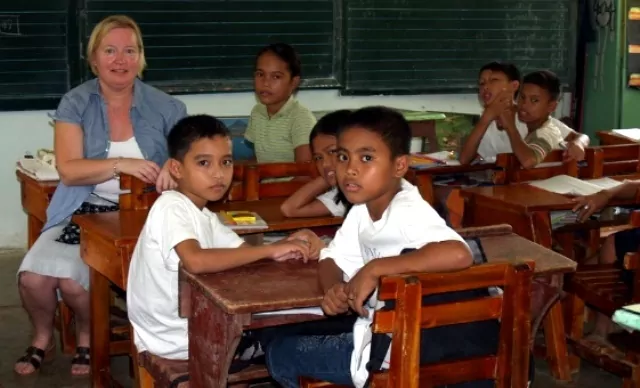
What have you been able to do for the school during these years and what has it meant for the students?
Over the years, generous supporters have come and gone. With my money and various grants, I have built three toilets, created a garden for a kitchen garden, built a side building for the school, bought shoes, organised outdoor days and sponsored school graduations and Christmas parties.
The school building has also received new flooring and furniture, new shutter windows and doors and their grilles. We have provided lunchtime meals, bought books for the classroom bookshelves and annual school t-shirts, etc.
All pupils living in the village now have the opportunity to go to school and today all the children in the village can read and write and it has become easier to recruit teachers for the school. Isn't that fantastic?
What has been the most fun and the most difficult part of working with the school?
The most enjoyable thing about the school initiative is that I can see that our efforts for the school and its pupils make a big difference. A small amount or effort often makes a big difference for many pupils.
Children want to go to school and parents are more supportive of schooling today than in the past. Similarly, school results in national tests have risen favourably over the years. In several school subjects, the national test results for school pupils are now at the top level.
The problems I have faced and still face are the big differences in our values. For example, I support all students in school. But many teachers and friends in the Philippines believe that I should support the students who have the best chances to go on to higher education.
Sometimes it happens that local politicians or parents ask for money or that they would rather have the money in their hands than me buying things that go directly to the students. As you can see, I don't work that way. Everything collected will go directly to the children in the school or to investments in the buildings.
Will you continue to support the school in Bohol and what are your tips for people who also want to make a difference somewhere?
What about the future? I will of course continue to support the school and the pupils, however, the support can change direction depending on so many things. I have become more demanding about what I think the municipality should do more of, in return, before discussing continued support.
I have a Filipino friend on site who now acts as the link between me and the school, which works very well. Would you also like to help? Then both I and the school children would be very happy and grateful.
Would you also like to support the school project? If you want to make a donation, you can contact me at the following address katarinasodkt@gmail.com or make a donation to the following account: Adlawan Elementary School. Swedish bankgiro no: 836-3210.
Finally, a question we ask everyone we interview: What is your favourite destination?
As you've probably realised, I have a special relationship with the Philippines and I'm not done exploring a country with over 7,100 islands yet. However, any destination where I can explore grapes, wines, vineyards and local food is interesting.
Finally! The feeling of knowing that I am actually making a difference for many children is a great motivator in life!
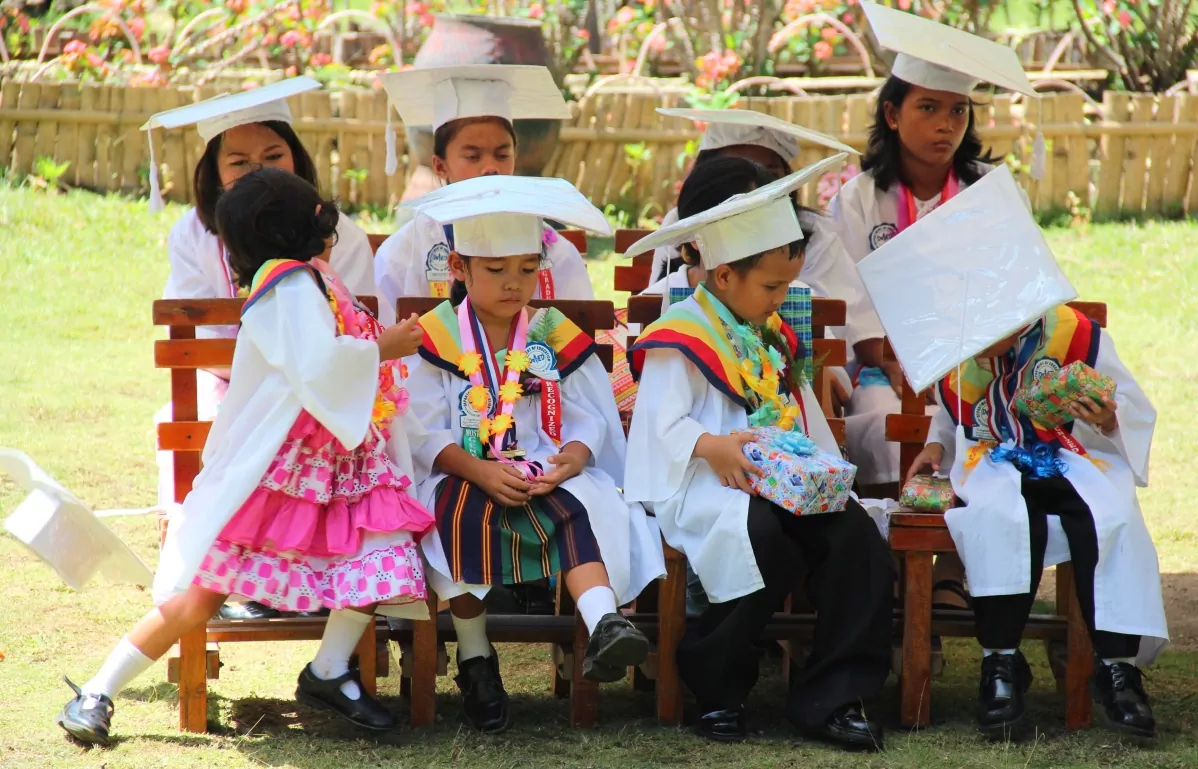
Thank you Katarina Söderberg for sharing your experiences and thoughts!

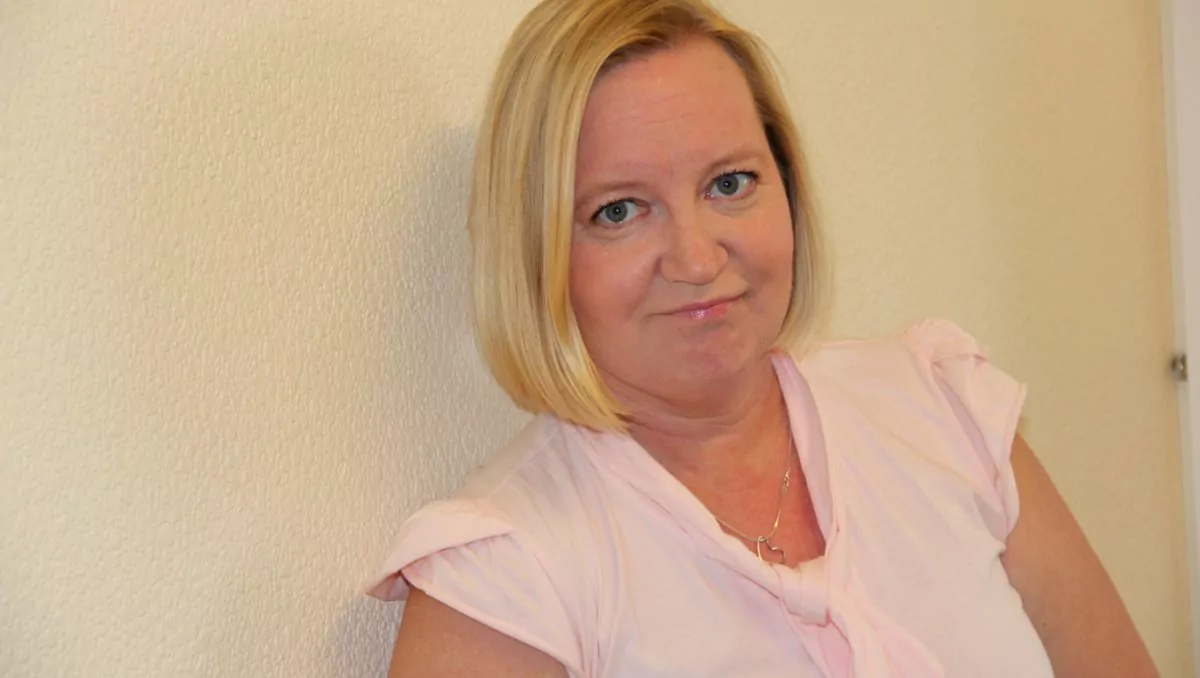










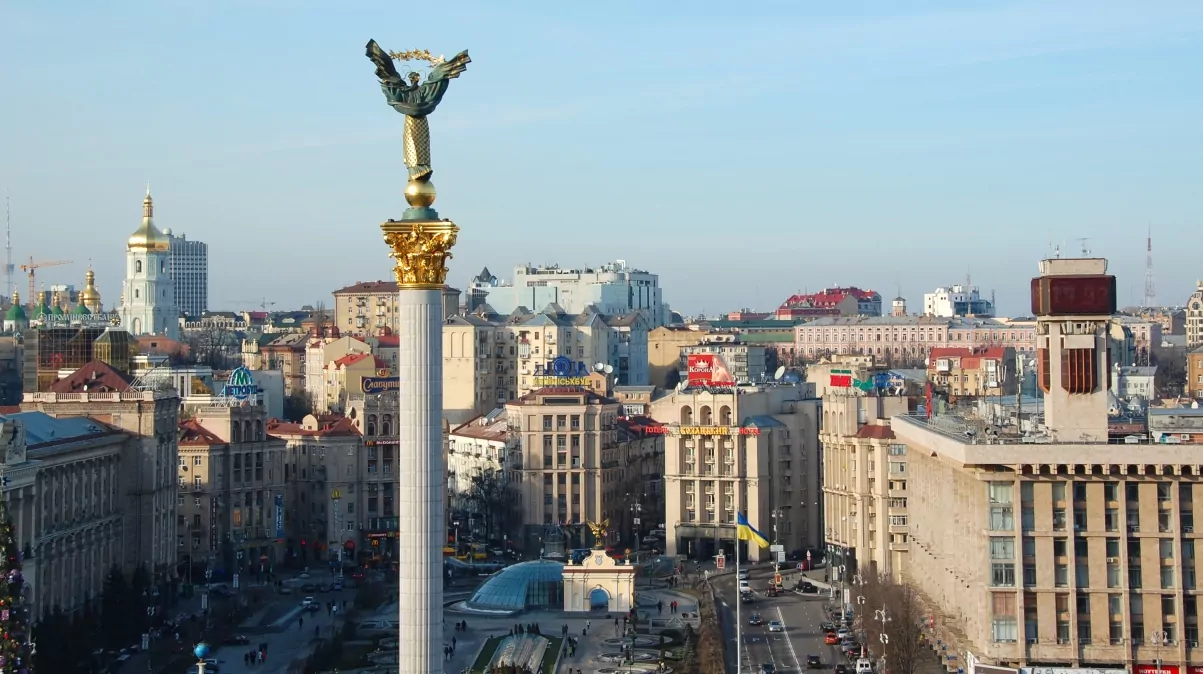
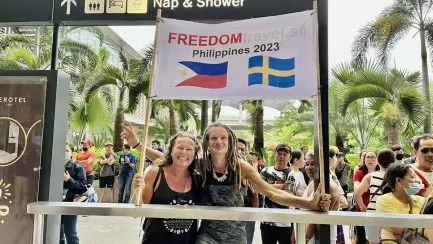

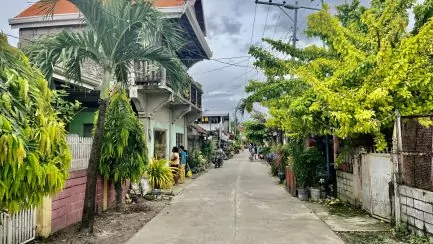
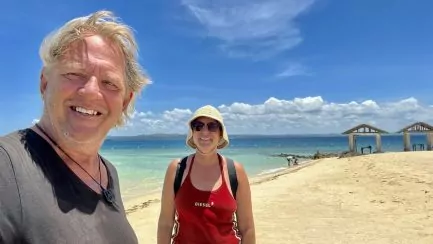




Lennart says:
What a wonderful person!
13 August 2016 - 7:08
Lena - gott för själen says:
What a great enthusiast! School uniform requirements! What nonsense! How can it be more important than getting kids to go to school....
I have just sent a small contribution.
Hug Lena
13 August 2016 - 7:31
Ditte says:
Thank you for this special and nice interview! Interesting to read about how all children in the village with the support of Katarina's fantastic commitment can get the opportunity to go to school. Commendable!
Katarina's clearly shows that with compassion and hard work it is possible to reach the goal.
13 August 2016 - 7:36
Eva - People in the Street says:
What a great interview with Katta! She really does a great job with the school. In addition, Katta is a really inspiring and super nice person and friend!
13 August 2016 - 8:41
Ama de casa says:
What a fantastic effort! All honour to Katarina 🙂
13 August 2016 - 9:20
JoY says:
I've been following Katta's blog and projects for a long time, and she's really passionate about the school.
Hugs
13 August 2016 - 10:16
åsa i åsele says:
Enthusiast!!! Wonderful person.
13 August 2016 - 11:44
Veiken says:
A great interview - again. This one probably touched me the most. A big thank you to all the enthusiasts who make our world a better place to live in! What a great girl!
13 August 2016 - 13:18
Kattis says:
What fun to read a little more about Katta and everything she both does and has done!:)
sv: hehe in the middle of August you shouldn't have to use the heat in the motorhome at night either, I think!:P
13 August 2016 - 14:25
Anna, New York - My Bite of the Big Apple says:
Wonderful efforts by our dear blog colleague Katarina. It warms the heart to read about this. A great interview too!
13 August 2016 - 15:54
admin says:
Lena, I was thinking the same thing, it must be more important for kids to go to school than to have the right clothes!
Ditte, glad you enjoyed the interview!
Veiken, glad you enjoyed the interview!
Anna, that's right! I feel the same way! It's people like this that make the world a better place! 🙂
13 August 2016 - 16:21
Kattas Betraktelser says:
Thank you for giving me the opportunity to talk about the school project. I'm glad you noticed that I snuck in an S that shouldn't be in your name. I have now corrected it.
13 August 2016 - 17:33
4000mil says:
Great to see people making a difference!
13 August 2016 - 18:14
Deciree says:
It should be Norrlanders :-)) They can 🙂 haha
13 August 2016 - 19:17
Geddfish says:
Oh, I'm glad I was able to blog a little more today. And get to read about this enthusiast. So fantastic! 😀
A very nice and touching report. Where the key word is TO MAKE A DIFFERENCE.
Warm hug ♥
13 August 2016 - 19:30
Matts Torebring says:
For myself, it hurts me so much when children are harmed. I am so happy when I read this commitment to the little ones. The youngest cannot understand the evil world we live in. So they need all the help and support they can get. It was great to read about this.
13 August 2016 - 21:25
Alexandra says:
Wow, what a job Katta does! Must immediately check out her blog ?
13 August 2016 - 21:46
BP says:
What a fantastic woman! To engage as a private person with a "regular" job in the education of children in the Philippines is absolutely incredible! All honour to Katarina! That her commitment also gave results is even better!
13 August 2016 - 22:49
Steve says:
I have been following Katarina's blog for a few years now and can't help but be impressed by her amazing commitment and efforts. She really makes a difference.
14 August 2016 - 13:17
Linda, 155cm.se says:
What a great read! I especially like the fact that she has started to make demands on the municipality to do part of the development so that it does not just become a lot of money that the municipality can blindly rely on. Fun!
14 August 2016 - 17:47
Yvonne says:
Jump on the trampoline!!! All for the blog Well, there's the limit:-)
14 August 2016 - 17:50
Francisca Pavasson says:
Hello!!! My name is Francisca Pavasson, I have lived here in Sweden for 20 years, I am from the Philippines, I was born in Bataan Luzon. I have bought land in bohol in Inabanga, I would like to visit you when we are there in the Philippines, but I have no idea where you are in bohol, it is wonderful that you help many people who cannot go to school, you have a golden heart that helps them. I have talked to Marianne Söderberg my colleague at work, she is retired now and works from time to time, she knows you and has told me that you have done a lot and helped those who cannot go to school. I hope I can contact you. Thank you very much. God Bless you. With kind regards. Francisca
11 September 2019 - 20:21